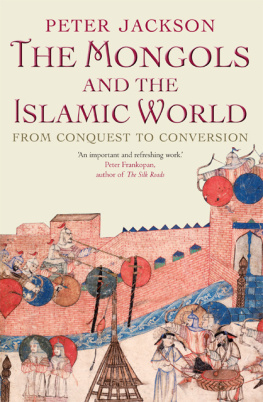The Mongols in Iran
The polymath, Qub al-Dn Shrz, operated at the heart of the Ilkhanate state (12581335) from its inception under Hulegu. He worked alongside the scientist and political adviser, Nasir al-Dn s, who had the ear of the Ilkhans and all their chief ministers.
The Mongols in Iran provides an annotated, paraphrased translation of a thirteenth-century historical chronicle penned, though not necessarily authored, by Qub al-Dn Shrz. This chronicle, a patchwork of anecdotes, detailed accounts, diary entries, and observations, comprises the notes and drafts of a larger, unknown, and probably lost historical work. It is specific, factual, and devoid of the rhetorical hyperbole and verbal arabesques so beloved of other writers of the period. It outlines the early years of the Chinggisid empire, recounts the rule of Hulegu Khan and his son Abaqa, and finally, details the travails and ultimate demise and death of Abaqas brother and would-be successor, Ahmad Tegudar. Shirazi paints the Mongol khans in a positive light and opens his chronicle with a portrait of Chinggis Khan in almost hallowed terms.
Throwing new light on well-known personalities and events from the early Ilkhanate, this book will appeal to anyone studying the Mongol Empire, Mediaeval History, and Persian Literature.
George Lane returned to academia in 1991 after many years living and working in the Middle East and Asia. Since obtaining his PhD in 2001 he has published, lectured, and talked about the Mongols, the Ilkhanate, and various aspects of mediaeval Islamic history all over the world.
Routledge Studies in the History of Iran and Turkey
Edited by Carole Hillenbrand
University of Edinburgh
This series publishes important studies dealing with the history of Iran and Turkey in the period 10001700 AD. This period is significant because it heralds the advent of large numbers of nomadic Turks from Central Asia into the Islamic world. Their influence was felt particularly strongly in Iran and Turkey, territories which they permanently transformed.
The series presents translations of medieval Arabic and Persian texts which chronicle the history of the medieval Turks and Persians, and also publishes scholarly monographs which handle themes of medieval Turkish and Iranian history such as historiography, nomadisation and folk Islam.
The Rum Seljuqs
Evolution of a Dynasty
Songl Mecit
Turkic Peoples in Medieval Arabic Writings
Yehoshua Frenkel
Turkish Language, Literature and History
Travellers Tales, Sultans and Scholars since the Eighth Century
Edited by Bill Hickman and Gary Leiser
Zengi and the Muslim Response to the Crusades
The Politics of Jihad
Taef Kamal El-Azhari
The Mongols in Iran
Qub Al-Dn Shrzs Akhbr-i Moghln
George Lane
For a full list of titles in the series, visit www.routledge.com/middleeaststudies/series/SE0697
First published 2018
by Routledge
2 Park Square, Milton Park, Abingdon, Oxon OX14 4RN
and by Routledge
711 Third Avenue, New York, NY 10017
Routledge is an imprint of the Taylor & Francis Group, an informa business
2018 George Lane
The right of George Lane to be identified as author of this work has been asserted by him in accordance with sections 77 and 78 of the Copyright, Designs and Patents Act 1988.
All rights reserved. No part of this book may be reprinted or reproduced or utilised in any form or by any electronic, mechanical, or other means, now known or hereafter invented, including photocopying and recording, or in any information storage or retrieval system, without permission in writing from the publishers.
Trademark notice: Product or corporate names may be trademarks or registered trademarks, and are used only for identification and explanation without intent to infringe.
British Library Cataloguing-in-Publication Data
A catalogue record for this book is available from the British Library
Library of Congress Cataloging-in-Publication Data
Names: Lane, George, 1952 author.
Title: The Mongols in Iran : Qub Al-Dn Shrzs Akhbr-i Moghuln- /
George Lane.
Other titles: Routledge studies in the history of Iran and Turkey.
Description: Milton Park, Abingdon, Oxon : Routledge, 2018. | Series:
Routledge studies in the history of Iran and Turkey
Identifiers: LCCN 2018006779 | ISBN 9781138500525 (hbk) |
ISBN 9781315143828 (ebk)
Subjects: LCSH: Qub al-Shrz, Mamd ibn Mascd, 1236 or
12371310 or 1311Criticism and interpretation. | Ilkhanid dynasty. |
IranHistory12561500. | IranKings and rulers.
Classification: LCC DS289 .L37 2018 | DDC 955/.026dc23
LC record available at https://lccn.loc.gov/2018006779
ISBN: 978-1-138-50052-5 (hbk)
ISBN: 978-1-315-14382-8 (ebk)
Typeset in Times New Roman
by Apex CoVantage, LLC
After centuries of gathering dust, lost in a large pile of disparate manuscripts, the late Iraj Afshar chanced upon this collection of historical notes penned though not necessarily authored by the polymath, Qub al-Dn Shrz. The jumbled pages of often scrawled script were hidden amongst other papers on a variety of subjects and by a variety of authors including the Jewish theosopher, Ibn Kammna, his colleague Nar al-Dn s, the Islamic commentator, Shahrestn, the poet, Sad, and many other poets, thinkers, and writers from the mediaeval world. Iraj Afshar managed to sort the pages of historical observations and anecdotes into some kind of order and transcribe Shrzs not easily decipherable script into an edited, legible text. His edited edition appeared in the holy city of Qum, central Iran, in 2009 along with the facsimile of the original and detailed notes and technical details about the original manuscripts including the order in which they had been found. From Afshars notes it is clear that a number of pages have gone missing and that the manuscript as it stands was not a finished product. It seems more to have been a collection of notes and observations to aid later researchers and historians compile their histories and chronicles. Some of the folios from which Afshar worked were stamped with the seal of Rashd al-Dns academy in Tabriz and indeed some of the incidents recorded in Shirazis work appear verbatim in the Jma al-Tavrkh .
Unfortunately, a great deal of the material from the great libraries of mediaeval Iran has been lost over the years as Persian capitals moved, were attacked or were ransacked and their priceless collections lost and scattered. Extant chronicles frequently mention tomes no longer available and quote works otherwise unknown. Rashd al-Dn detailed the extreme measures that he went to ensure that his own great chronicles would survive and yet despite such care and determination most of the original copies of his great work, painstakingly produced in all Irans major urban centres, have disappeared. However, the recent discovery of not only Shirazis little gem but of the substantial work of Majd al-Dn Tabrizi, the Safna-ye Tabrz , brings hope for the future. Tabrizis Safna is a complete library of literary works including poetry, philosophy, history, theology, and scientific works, all meticulously copied out by a local man of means, Majd al-Dn, in the 1320s. Tehran University has now reproduced a facsimile edition of the work which provides a unique insight into the intellectual milieu of the later Ilkhanate. However, more than this, the appearance of both these two works provides hope that in the future more such discoveries will be made and more of those very many missing tomes will eventually reappear for the edification of some very source-hungry scholars.

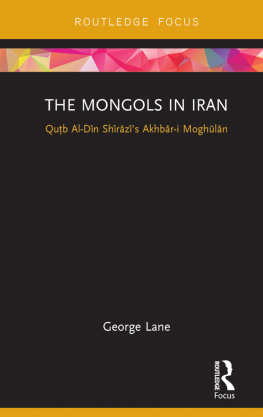

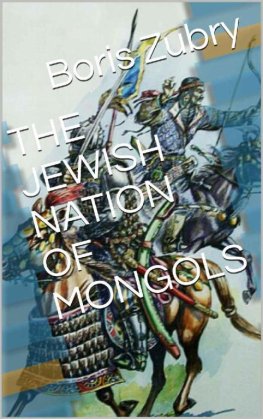
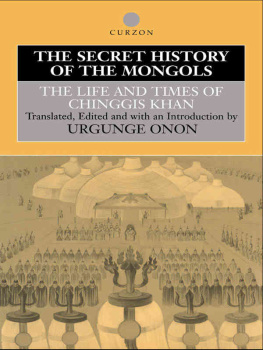
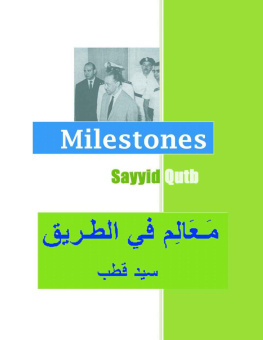
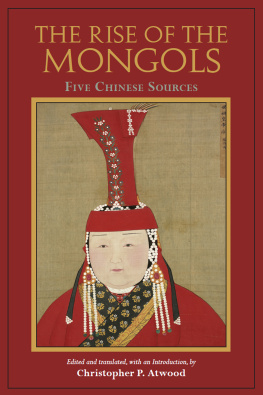
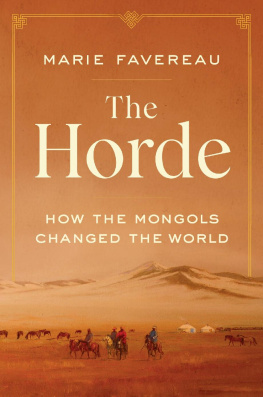
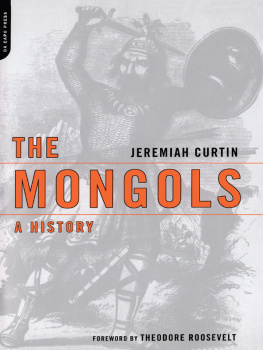
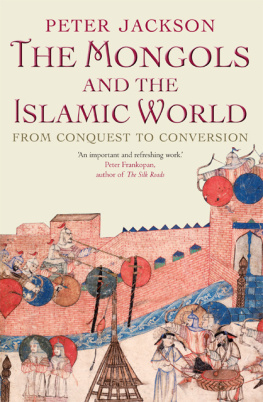

![Timothy May - The Mongol Empire [2 Volumes]: A Historical Encyclopedia](/uploads/posts/book/143064/thumbs/timothy-may-the-mongol-empire-2-volumes-a.jpg)
